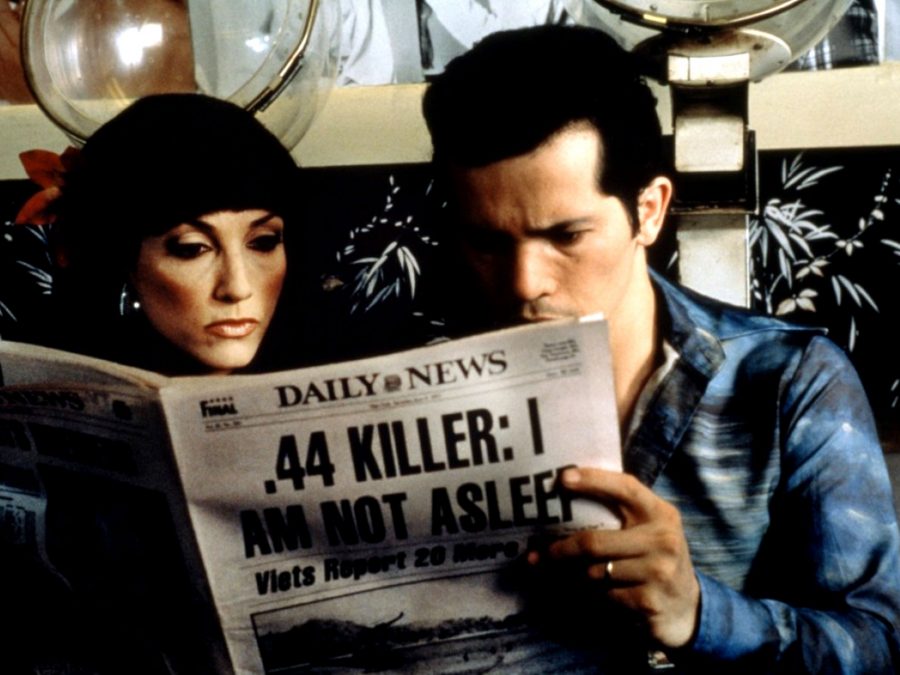Summer of Sam (1999) - Murders and blackouts of the 1970s

The David Berkowitz story (real-life serial killer known as 'Son of Sam') set in a fictional Italian-American neighbourhood
Spike Lee is a great filmmaker. His films are beautiful profiles of people, their cultures and how these cultures have impacts on those people. They are also about neighbourhoods (or microcosms), their sanctities and how these sanctities get threatened because of insecurities. People in these neighbourhoods are proud of who they are and what they belong to. They hold their identities close to themselves, living in codes and moral values that are known only to them, but if someone (or something) were to come in between, things don't go down well. In Clockers (1995), Harvey Kietel, a white policeman, roots for a black kid from a rough ghetto so that the kid doesn't end up in jail or get killed like many others have. He strives to put him on the right track, implores him to choose the right thing but the kid feels hell-bent on doing what his folk have taught him - ride on luck & false-bravado and see where you end up. But, since the cop doesn't belong to the neighborhood, his advice isn't of much value. In Do the Right Thing (1989), a black neighbourhood suddenly feels antagonized by a white Italian-American family which, until the previous day, had been running a successful pizza place quite harmoniously.
Things are always on the edge & precariously placed in these localities and it only takes one misplaced thought to topple everything over. On the outside, Spike Lee's films are about race and color-divide but if you look closer, they are mostly about perspectives and conditioning.
Summer of Sam too is about a bunch of close-knit people who share lives to such an extent that secrets about each other are mostly matters of fact. The youth in this movie live more on the streets than inside homes and their everyday conversations mostly involve resolving conflicts because they just know too much about other. Things are hot, much like the weather, and there's a rush to everything, always brimming with crazed energy that's evident from the dialogue and the general temperament of the characters. These people hangout in night clubs, cheat on their partners and go back onto the streets the next day to have more banter. Clockwork. The visual palette is rich & warm and you can feel the temperature soaring to mess with these minds (record temperatures, blackouts) and create unnecessary havoc. The infiltration that I mentioned earlier comes in two ways - one in the form of a serial killer and the other as a subculture that is as menacing if not more.
Summer of Sam is a movie with a serial killer in it but it isn't a portrait because Spike Lee is too good a filmmaker to make movies about people who have been discussed incessantly. The film, in turn, is the impact of the presence of a serial killer in the midst. No one knows who he is or if it even is a man to begin with, but there's an immediate feeling of unsettlement because of a foreign presence. If this person, irrespective of color or gender, doesn't belong to this neighbourhood, things can't be right. The same thought-process of these people guides them everywhere, including their personal lives. Their lives are chaotic because such is the nature of their jobs but there's an order to that chaos. It's an order dictated by their previous generations and everyone believes in continuing the exact same way. Men court women, marry them if they're lucky and go on feeling entitled unless something changes their minds. The women feel glad to be courted, being wooed by the dapper cars and leather jackets, and marry their men in the hope of life being as rosy for as long as possible. Clockwork.
We see many sub-narratives during the course and there's constant tension to find out who the victim might be. Each story has its own drama, conflict and pace but it's all in one neighbourhood that has an common frame of mind (except for one main character and that's the crux of the film, in a way). The film is beautiful for such elements because we hardly get to see stories that have the perspective of potential victims of a serial killer. Lee tries something very interesting by using real-life events and treating them as backdrops to tell us a larger story. Plus, it's the first for an all-white star cast to feature in his film. Check it out!
Comments
Post a Comment